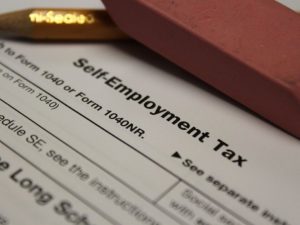Business Car Leasing for the Self-Employed
14th March 2019Are you self-employed and looking to lease a car through your business? If so, you’re in the right place.
The idea of this feature by Rivervale Leasing is to look at business car leasing options for self-employed, and what self-employed car expenses you can claim.
In the UK, self-employment has increased drastically over the last two decades. The number of self-employed workers has increased from 3.3 million in 2001 to 4.8 million in 2017, according to  the Office for National Statistics. An individual can be deemed as self-employed if they:
the Office for National Statistics. An individual can be deemed as self-employed if they:
- Own a business, rather than work for an employer
- Agree a fixed price for their work with their employer or client
- Be your own boss i.e. set your own schedule and prices
- Works for more than one client
- Provide the tools, equipment or materials that they need to complete a job
- With statistics covered, can self-employed workers qualify for a business car lease?
You can lease a car through a business if you are any of the following;
- Self employed
- Limited Company
- A Partnership
- A VAT registered business
- A Limited Liability Partnership (LLP)
- A PLC
- A Charity
- Local Authority
- Central Government
- An Embassy
If you are self-employed then you can get a business car lease because you’re essentially operating as a sole trader.
So, now that we’ve established that self-employed workers can qualify for a business car lease, what documentation will you need to provide before you can lease a car?
If you are business leasing as a sole trader, you still need to go through a similar process as someone that is personal leasing.
Here’s what you may have to provide:
- Your latest set of trading accounts
- Your last 3 months bank statements
- Proof of address
- Proof of ID
If you are given the all clear by the finance company, then it means you are eligible for a business car lease.
“Leasing a car rather than owning one can liberate money for the self-employed worker or business to spend more profitably in more ways than one”
Do I have to pay company car tax if I am self-employed?
If you lease car through a business, the odds are you will likely have to pay company car tax.
However, you do not have to pay company car tax if you:
- Are a Partner or a small Partnership
- A member of a Limited Liability Partnership
- You are the owner of your own business / sole trader
This ultimately means that as a self-employed worker, you do not have to pay company car tax as there is no legal difference between you and your business, you will always own your vehicle.
Here is a brief guide on what self-employed car expenses you can claim
As a sole trader you have two options to claim a tax deduction for your business miles.
Actual motoring expenses
First and foremost, you will need to keep a record of all your mileage – whether it’s for business or personal purposes – and at the end of the year you will need to calculate how much mileage you did.
But what about when you use it for dual-purposes?
Let’s say, for example, you might use it mainly to drive to clients, but you’ll also need go to the supermarket and private weekend use.
You will need to keep a log of all your receipts and motoring expenses over the year including:
Petrol (normally you should mark down the starting off mileage and after finishing the end mileage figure)
- Car insurance
- Road tax
- MOT
- Repairs and maintenance
At the end of year, once you’ve calculated how much mileage your vehicle has done, you will need to work out what percentage was for business – this is equal to your business miles divided by your total miles.
Your tax-deductible expense is then your total motoring costs multiplied by your business use percentage.
We advise that you keep your motoring expenses receipts and your mileage log with your tax records so you can show evidence of how you calculated your mileage expense to HMRC (HM Revenue & Customs)
If you use the actual cost method, you can also claim a ‘capital allowance’ for the purchase of the vehicle. You can learn more about capital allowances on www.gov.co.uk.
Flat rate for business mileage
Alternatively, you can claim expenses using a flat rate for business mileage. The flat rate covers the entire cost of buying, running and maintaining the vehicle so you can’t claim ‘capital allowance’ for its purchase. For cars, the flat rates can be seen in the table below;
| Vehicle | Flat rate per mile with simplified expenses |
| Cars and goods vehicles after first 10,000 miles | 45p |
| Cars and goods vehicles after first 10,000 miles | 25p |
Again, you’ll need to keep a business record of how many business miles you travel.
Remember: once you start using the flat rate for a vehicle, you can’t switch to the actual cost method. However, you can use the actual cost method for a different vehicle.
If all this information sounds complicated, you can use the checker use the simplified expenses checker on www.gov.co.uk to work out which method is best for you or talk to your accountant.
If you would like any advice about business car leasing and whether you’re eligible as a self-employed worker, our Account Manager’s at Rivervale will be happy to talk to you.

